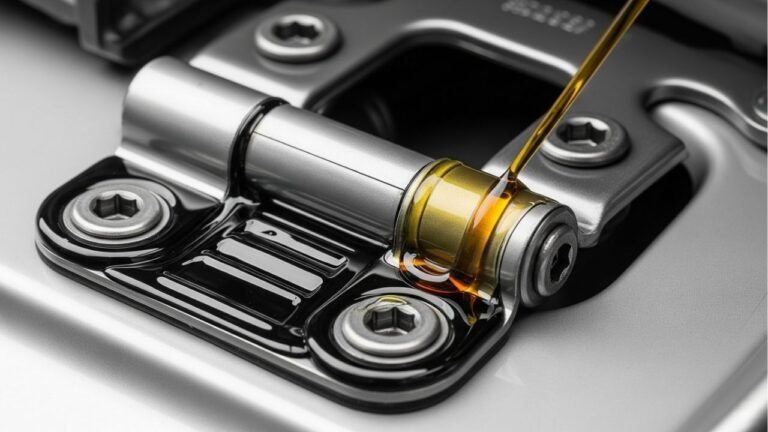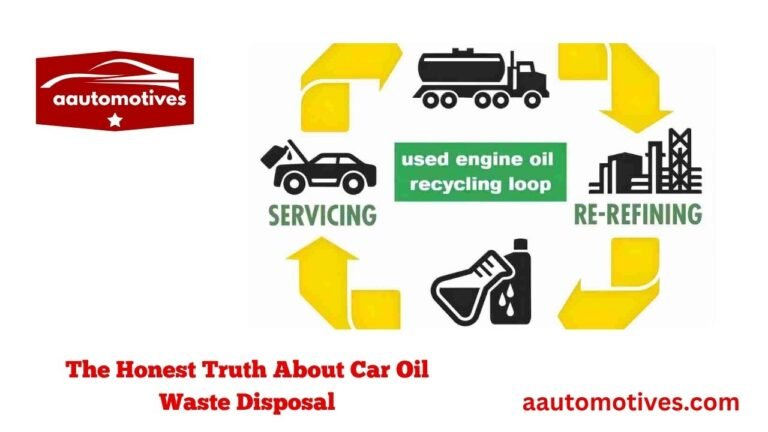The Most Expensive Oil Change for a Car

Imagine walking into a service center, handing over your keys, and coming back to a bill that looks more like a luxury watch receipt. You’re not paying for engine replacement. No transmission rebuild. Just… an oil change. Sounds insane, right?
But it’s real.
Welcome to the world of the most expensive oil change for a car—where oil isn’t just oil, and cars aren’t just cars. From hand-built engines to space-grade lubricants, some oil changes cost thousands of dollars. But why? What goes into it? Is it just hype? Or is there a method to this madness?
This article dives deep into the real stories, hidden reasons, and life lessons behind ultra-expensive oil changes. Whether you’re a curious car enthusiast or someone wondering if you’re overpaying, you’ll find something in here for you.
Let’s explore, together.
In This Article
- 1 The World’s Most Expensive Oil Change: It’s Not Your Toyota Camry
- 2 What Makes These Oil Changes So Unique?
- 3 Real Costs Breakdown: Bugatti Veyron Oil Change
- 4 A Personal Story: My Friend’s $3,000 Ferrari Oil Change
- 5 Are Expensive Oil Changes Ever Justified?
- 6 Takeaways for Everyday Drivers
- 7 Famous Luxury Oil Change Disasters: When Money Can’t Fix Stupidity
- 8 How Synthetic Oil Has Changed the Game
- 9 Regular vs Exotic Car Oil Change: The Cold, Hard Comparison
- 10 A Metaphor You’ll Remember: Heart Surgery on a Lion
- 11 FAQs About the Most Expensive Oil Change for a Car
- 11.1 1. Why does a Bugatti need 27 hours for an oil change?
- 11.2 2. Is it really necessary to use $100/liter oil?
- 11.3 3. Can you DIY an exotic oil change?
- 11.4 4. Are there cheaper alternatives?
- 11.5 5. Does expensive oil mean better oil for my Toyota or Hyundai?
- 11.6 6. How often do these cars need oil changes?
- 11.7 7. Why don’t manufacturers make it easier?
- 11.8 8. Is it worth buying a car with such high maintenance?
- 12 Final Thoughts: It’s More Than Oil—It’s a Statement
The World’s Most Expensive Oil Change: It’s Not Your Toyota Camry

The record-breaking case involved the Bugatti Veyron, a hypercar with a price tag north of $2 million. Its oil change costs between $20,000 to $25,000, depending on labor and parts. And it’s not just because it’s fancy—it’s because the process is so intense, it takes 27 hours and requires removing the entire rear end of the vehicle.
But Bugatti isn’t the only culprit. Other ultra-luxury and performance cars—think Lamborghini, Ferrari, McLaren—have their own high-ticket maintenance rituals. While a regular car might cost $50 to $100 for oil service, exotic vehicles play by different rules. And the rules are brutal… for your bank account.
Why So Expensive?
-
Specialized oil only available through the manufacturer
-
Custom-made tools and trained technicians
-
Labor that takes days, not minutes
-
Exotic metals and engine configurations
-
Location of the oil reservoir (sometimes hidden under layers of engine parts)
Even a Koenigsegg or Pagani requires a near-surgical process just to access the drain plug. The oil is often shipped from Europe. And warranties? They get voided if you skip these expensive rituals.
What Makes These Oil Changes So Unique?
Let’s break it down like a good mechanic explaining it to a friend over tea.
1. The Oil Itself Isn’t Ordinary
In these cars, oil isn’t just a lubricant. It’s an essential performance component. Take the Bugatti Veyron again—it uses a special synthetic oil blend developed by Motul. This oil handles temperatures and pressures that most regular cars will never see, even in their wildest racing dreams.
Regular 5W-30 oil from your local store just won’t cut it. We’re talking about space-age fluids engineered for quad-turbocharged engines. The oil must remain stable at insane RPMs. That stability? It doesn’t come cheap.
2. Labor-Intensive Process
Here’s where it gets spicy. Changing the oil in a Veyron requires removing 16 drain plugs. Yes, sixteen. And they’re tucked away like Easter eggs in a jungle gym of carbon fiber and titanium.
Most mechanics aren’t trained for it. So you need certified technicians—who often fly in from Europe. Add flights, hotels, hourly rates, and the sheer time it takes (sometimes 2–3 full days), and you’ve got your answer.
3. Tooling and Facility Requirements
You can’t just roll a Lamborghini Aventador onto a basic jack. These cars need custom lifts, torque-specific tools, and dust-free environments.
Why?
Because if even a tiny speck gets into the oil lines of a high-performance V12, it could mean a six-figure engine repair. Everything has to be clinical. Precise. Borderline obsessive.
Real Costs Breakdown: Bugatti Veyron Oil Change
Here’s a table showing how the most expensive oil change for a car stacks up:
| Cost Component | Estimated Price (USD) |
|---|---|
| Special Synthetic Oil (16L) | $800 – $1,000 |
| Certified Technician Labor | $10,000+ |
| Transport & Setup | $3,000 – $5,000 |
| Tooling + Environment Fees | $2,000 – $3,000 |
| Bugatti Inspection + Testing | $2,000 – $5,000 |
| Total Estimate | $20,000 – $25,000 |
Mind-blowing, right? And yes—owners willingly pay this every 14–18 months, depending on driving habits.
A Personal Story: My Friend’s $3,000 Ferrari Oil Change
This one’s close to home.
A friend of mine, Zakir, owns a Ferrari 458 Italia. Gorgeous car—blood red, sings like a demon. He’s one of those car guys who polish their exhaust tips with a toothbrush.
One day, he took it in for a regular oil change. He expected a hefty price—maybe $500. But guess what?
$3,042.71.
He was stunned.
Turns out, Ferrari insists on using factory-only oil, and the labor involved in accessing the pan takes hours. On top of that, they upsold him on fluid diagnostics, a new oil filter housing (mandatory), and a computer recalibration to reset the oil change indicator. All “standard procedure,” they said.
To be fair, Zakir said the engine felt smoother afterward. But the financial sting? That one stuck for weeks. And now he jokes, “Next time I want oil changed, I’ll trade in the car and get a new one.”
Are Expensive Oil Changes Ever Justified?
This is the heart of the matter. Why would anyone pay thousands for oil?
Because for them, it’s not just a car. It’s a precision machine. You don’t feed racehorses cheap hay. Same thing here.
The oil isn’t just “changed”—it’s analyzed, measured, tested, and documented. In high-stakes machines, oil can affect acceleration, heat transfer, and engine longevity.
But there’s also ego involved. Let’s be honest.
For some, it’s about exclusivity. It’s about saying, “Yeah, my oil change costs more than your whole car.” And honestly, if you’ve got $2 million to buy the car, what’s $20k for oil?
Still, it makes you wonder where the line is between necessary care and glorified bragging rights.
Takeaways for Everyday Drivers
Even if you don’t drive a Bugatti or a McLaren, you can still learn a few things from the most expensive oil change for a car:
-
Never skip oil changes, even if they’re pricey. Engine repairs cost way more.
-
Stick to manufacturer recommendations. It’s not always marketing fluff.
-
Quality oil = better performance. Even in a Honda Civic.
-
Ask questions before service. Know what you’re paying for.
-
Don’t fall for upsells. Especially if your car doesn’t need diagnostics every time.
Famous Luxury Oil Change Disasters: When Money Can’t Fix Stupidity
You’d think if someone drops $25,000 on an oil change, the garage would roll out the red carpet and call NASA to oversee the process. But nope.
There are real cases where even supercars suffered from sloppy oil jobs. The saddest part? The cost of repair after a “bad” oil change on a luxury car can reach six figures.
A Lamborghini Gallardo in Flames
In one infamous case, a Lamborghini Gallardo caught fire because the technician overfilled the oil by two liters. It overflowed onto hot engine parts and—boom—flames shot out of the engine bay on a highway.
Insurance covered it, but the owner said, “It’s like watching your child burst into flames.”
A Bugatti’s Missed Plug
Another Veyron was nearly destroyed because a mechanic missed just one of the 16 drain plugs. That one plug caused oil to leak slowly onto wiring, shorting the ECU and damaging components that cost more than the oil change itself.
Lesson? It’s not just the price. It’s the precision.
How Synthetic Oil Has Changed the Game
Back in the day, your grandpa probably changed his car’s oil with a tin can and a wrench in the garage. And it worked. Why? Because engines were simple.
Now? Engines are computers with pistons. And they need more than just “oil”—they need chemistry.
What Makes Synthetic Oil Better?
-
Molecular uniformity: Better flow, less friction
-
High-temperature resistance: Ideal for turbocharged engines
-
Longer lifespan: Some last up to 15,000 miles
-
Cleaner burn: Fewer deposits, better fuel economy
This is especially important in high-performance engines where temperatures can reach 600°F or more. That’s why the most expensive oil change for a car involves custom synthetic blends that often cost more than $100 per liter.
These oils are engineered, not just refined. They’re designed in labs to perform under conditions your average sedan will never face.
Regular vs Exotic Car Oil Change: The Cold, Hard Comparison
Let’s lay it out simply.
| Feature | Regular Car (e.g., Toyota) | Exotic Car (e.g., Bugatti) |
|---|---|---|
| Oil Type | Standard synthetic | Custom-blended synthetic |
| Oil Volume | 4–6 quarts | 15–20 quarts |
| Labor Time | 30–45 minutes | 20–30 hours |
| Technician Skill Level | General mechanic | Certified exotic specialist |
| Frequency | Every 5,000–10,000 miles | Every 1–2 years |
| Cost | $50–$150 | $3,000–$25,000 |
| Complexity | Low | High (multiple drain plugs) |
The takeaway?
While a regular oil change is about efficiency, an exotic one is about ritual and perfection.
A Metaphor You’ll Remember: Heart Surgery on a Lion
Let me tell you how I explain this to my friends.
Doing an oil change on a Honda Civic? That’s like clipping your nails. Quick, simple, a little messy maybe—but no drama.
Doing an oil change on a Bugatti? That’s like performing open-heart surgery on a lion. It’s dangerous, complicated, and if you mess up, you might lose more than just money.
The analogy helps people understand: you’re not just changing oil. You’re entering a sacred mechanical space that’s been tuned and tested to perfection.
FAQs About the Most Expensive Oil Change for a Car
Here are some questions people always ask when they hear these stories:
1. Why does a Bugatti need 27 hours for an oil change?
Because the engine is buried under multiple layers. Techs must remove panels, drain from 16 plugs, clean each component, then test every part before reassembly.
2. Is it really necessary to use $100/liter oil?
In those engines, yes. Regular oil can’t handle the heat and stress. Using cheaper oil could kill the engine, void warranty, or both.
3. Can you DIY an exotic oil change?
Technically? Maybe. Realistically? Don’t even try. You need lifts, tools, software, torque specs, and a clean environment. Mistakes can be catastrophic.
4. Are there cheaper alternatives?
For exotic cars? Rarely. Some services outside the dealership may offer minor savings, but you often risk voiding the warranty.
5. Does expensive oil mean better oil for my Toyota or Hyundai?
Not necessarily. Your engine was built for a specific oil type. Always follow the manual. Better oil won’t hurt—but overkill isn’t magic.
6. How often do these cars need oil changes?
Usually every 12 to 18 months, depending on usage. Many exotic cars don’t rack up a lot of miles—so time, not mileage, becomes the trigger.
7. Why don’t manufacturers make it easier?
Because performance and ease rarely go together. These engines prioritize aerodynamics, weight balance, and power—not your mechanic’s convenience.
8. Is it worth buying a car with such high maintenance?
Only if you can afford it without flinching. These cars are investments, collectibles, or passion projects—not daily drivers.
Final Thoughts: It’s More Than Oil—It’s a Statement
Here’s the truth most people won’t say out loud: the most expensive oil change for a car isn’t just about what the engine needs. It’s also about what the owner wants to feel.
It’s about precision, luxury, and yes—status. These cars aren’t just machines. They’re art, engineered to perfection. The oil isn’t a fluid—it’s part of the symphony.
But still—don’t forget your Toyota. Don’t forget your daily ride. Because if you treat even a modest car with love and timely oil changes, it will last longer, run smoother, and save you thousands.
You may never own a Veyron. You may never spend $20K on an oil change. But understanding why it costs that much? That’s where curiosity meets wisdom.






